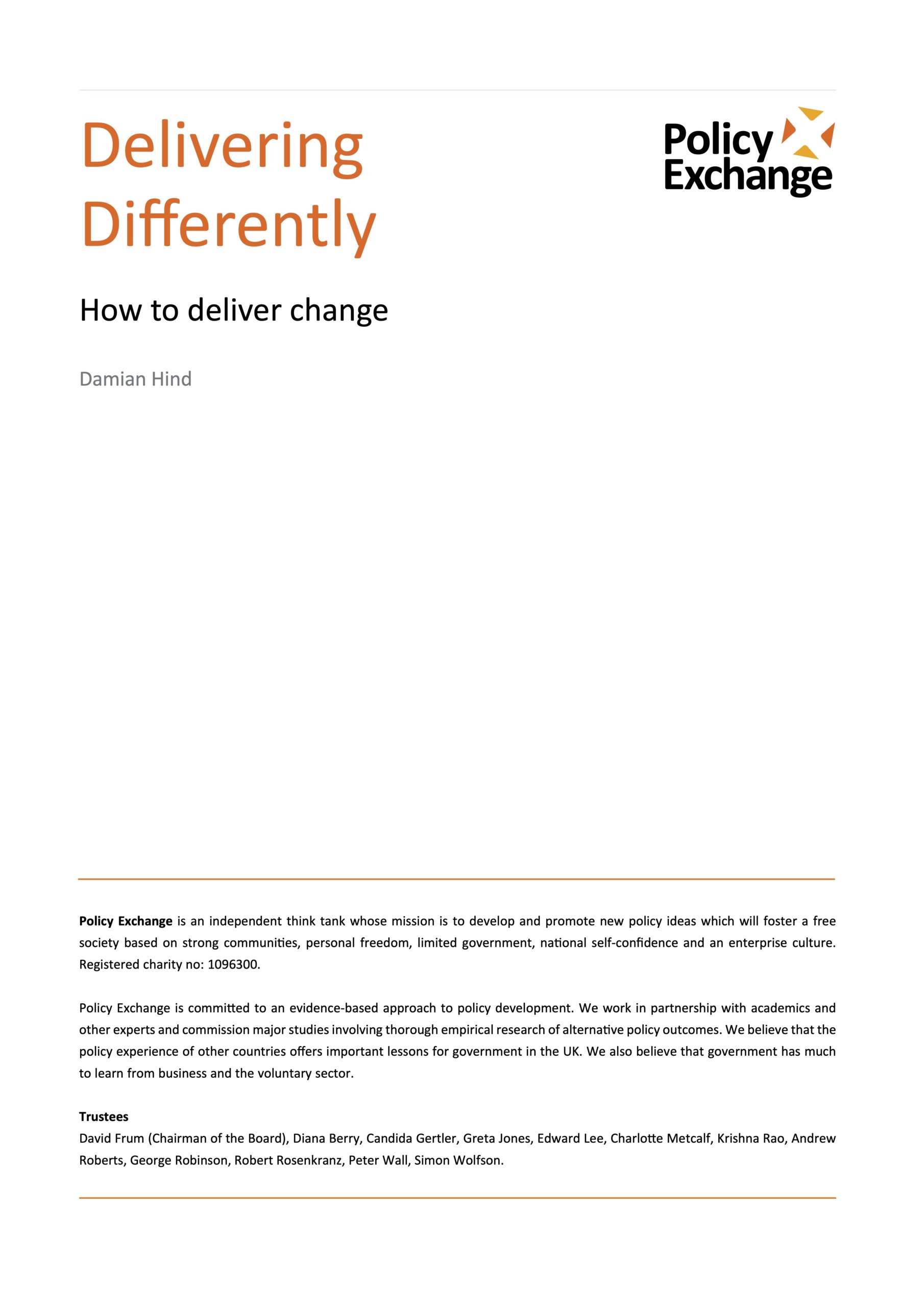
Delivering Differently
Delivering Differently, argues for a bottom-up and localised approach to solving longstanding challenges in welfare, health, criminal justice and education. The paper says that there is an inherent tension between Westminster’s desire to get something done and the lack of simple, one-size fits all solutions to issues such as unemployment, housing, increasing wages and addressing mental and physical health issues. While the Government has already made some progress in devolving powers to local authorities, it has not gone anywhere near far enough. Redistributing the Civil Service to all corners of the country will turbo charge devolution, bring decision-makers closer to the people and provide local communities with the additional capability they need to manage their new financial and administrative powers.
The government could have made more effective progress in delivering a 7-day NHS if it approached the issue from a local rather than national perspective. It highlights one NHS Trust in Northumbria that has had a 7-day NHS service arrangement since 2004. The Trust was able to negotiate a 7-day rota agreement with consultants within the existing contract precisely because it was managed small-scale. The changes were not imposed from on high and the doctors saw for themselves the need to change resourcing requirements to even out the service. Pragmatic bargaining was made much easier: consultants working in some specialities have continued with the old arrangements where it was felt a 7 day presence was not needed and for the majority who have moved to extended working at the weekend, the workload has evened out and they are less frequently on call outside of hospital hours.
The report says that the Government will only ever achieve effective reforms to the public sector if it similarly encourages change to develop locally and from the bottom-up. A key element of achieving this new approach is to ensure that every part of the country has talented civil servants who can innovate and drive efficiency improvements.
The report sets out a number of other ideas to deliver a more productive state including:
- Separating the Treasury’s budgeting function from its economic and financial responsibilities, ending the current system of top-down and short-term budgeting, as well as introducing new budget flexibilities that allow local places to experiment with ‘invest to save’ financing models.
- Public sector organisations such as schools and prisons should be able to set their own budgets, opt-out of national guidelines or contracts and set their own delivery models
- Local areas should be given full autonomy over public sector pay so they can alter national terms and conditions.
- The Government should pave the way for a Public Sector Innovation Bill that creates a new legal basis for experimentation in policy to minimise the number of delays and failures in Government projects.

